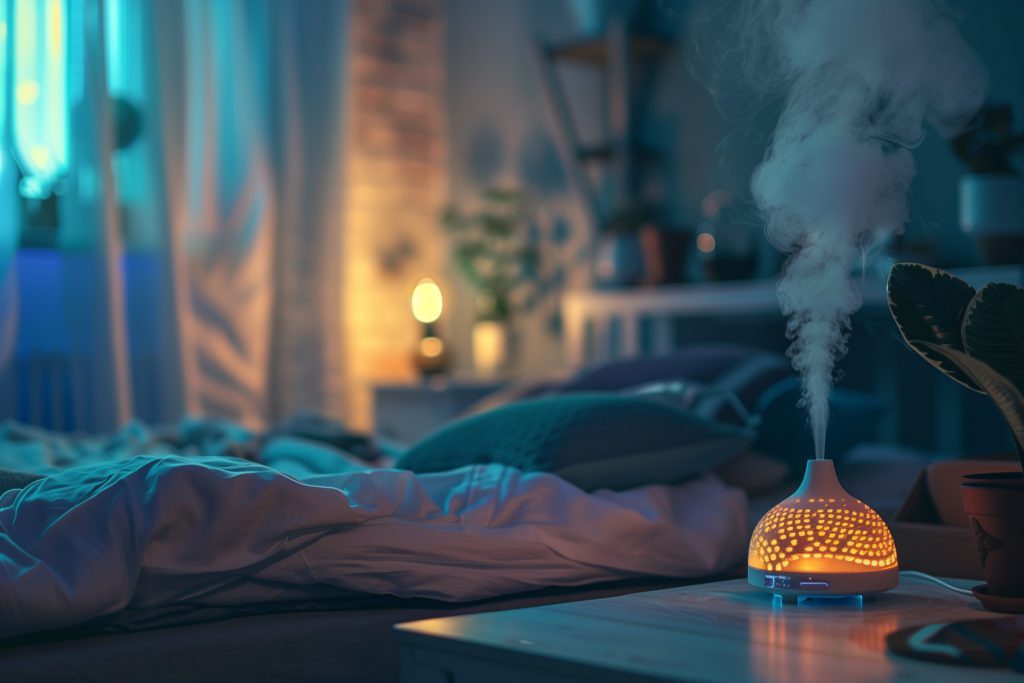
Exercise as a Stress Reliever: How It Can Enhance Sleep and Reduce Anxiety
Explore how exercise can reduce stress and enhance sleep. Learn tips for exercising that lessen stress and make it easier to fall asleep.

Sometimes, you have to work your body to get it to relax. This is how it is with exercise; while it pumps up your heart rate and quickens your breathing, exercise also acts as a natural stress reliever that, when timed properly, can help you fall asleep and sleep better.
Stress is nothing to roll over and deal with—it can impact your quality of life, cause physical symptoms to appear, and destroy your mental health. However, exercise is one tool you can use to relieve stress and regain control over your well-being. As a bonus, your heart and body will also enjoy the boost exercise offers.
Let’s explore the ways that exercise relieves stress and how to strategically use daytime exercise to have a better night.
How Exercise Relieves Stress
When you’re stressed, you may turn to many methods of stress relief, such as talking to friends or family, watching movies or TV, sleeping, or eating—some are notably healthier habits than others.
One good habit to add to your arsenal against stress is exercise. Let’s explore how exercise can help your body work through stress and come out the other side stronger, mentally and physically.
Offers A Stress Outlet
Stress occurs when the body senses a stressful situation and produces the stress hormones cortisol and adrenaline, which raise your heart rate, quicken your breathing, and put your body into fight-or-flight mode—we’re not meant to be in this mode long-term, though.
The way these hormones work is that they build up, but then the action of fighting or fleeing uses up the hormones, lowering them back to normal resting levels. Unfortunately, we don’t need this same fight or flight response as our earliest ancestors, and our daily problems likely can’t be solved by fighting or running away. However, you can still use this knowledge to lower your stress hormones.
By exercising, you’re moving your body in that fight or flight manner, lowering stress hormone levels so that they no longer circulate through your body and produce these feelings of stress. A study even found that these declines in stress hormones are seen for 24 hours after exercising.
Increases Your Endorphins
As anyone who has ever seen Legally Blonde knows, “Exercise gives you endorphins. Endorphins make you happy.” We’ll leave you to fill in the rest of the quote yourself.
As for how endorphins work in the brain, let’s take a closer look.
Endorphins are the body’s natural pain reliever, and they work by blocking the nerve cells that receive pain signals. No signal receipt means no pain, which means your body feels much better.
Ever heard of a “runner’s high”? This feeling where athletes feel relaxed, calm, and like they can continue going stems from the release of endorphins, which block the temporary pain from exercise, leaving relaxation and contentment behind.
The good news? Any aerobic activity, when completed for long enough, can produce these same results, leaving you calm and relaxed.
Gives Your Brain A Break
When you exercise, you’re forcing your mind to focus on something other than the stress-inducing events that worry you, giving you a break and letting you focus on your body rather than your thoughts. Furthermore, exercises with repetitive natures act similarly to meditation, producing similar results such as reducing stress, increasing cognitive function, and improving mood.
The key to achieving this is to focus intently on your exercise. If you find your mind wandering, maybe try a form of exercise that requires more attention so you can more easily enter “the zone.”
Improves Your Physical Health
While not an instant result, regular exercise improves your physical health by supporting your heart, building muscle tone, and increasing your balance. If the cause of your stress is related to your health and wellness, these benefits offer a long-term solution to your stress.
For example, older adults stressed about falling and its dangerous repercussions can exercise to maintain their balance and muscle tone, lessening their fall risk. For those with a family history of heart disease, aerobic exercise can help them be proactive against this disease, reducing their stress.
In these ways, exercising can help reduce stress related to your health.
How to Use Exercise to Stress Less and Sleep Better
Follow these tips to make the most of your exercise and see the greatest benefit to your mental health. The less stressed you are, the better you sleep; the better you sleep, the better you will feel.
Exercise Outdoors
If your environment allows for it, try to do your exercise outdoors. There are many ways that your sleep can benefit from this.
First, by getting outdoors in the morning and enjoying the sunlight, you can help keep your circadian rhythm regular, which can make falling asleep at night easier.
Additionally, being in the sunlight can help boost serotonin, which regulates your mood (making you feel better) and plays into your sleep-wake cycle, further helping your sleep.
Combining exercise with sunlight exposure amplifies the results you would see from either habit individually.
Exercise With Friends
Yet another great habit to stack when it comes to reducing stress is exercising with a friend. Laughing with a friend can help relieve feelings of stress and anxiety due to its ability to boost endorphins and dopamine.
Working out with a friend can also hold you more accountable, making you more likely to stick to your exercise goals.
Be Consistent
Research has shown that regular physical activity improves sleep quality and duration—the key word here being regular. By exercising for at least 30 minutes a day, you’ll sleep longer than those who don’t.
Be aware of your timing, though; while high-intensity exercise offers a greater release of endorphins, completing it too close to bedtime may make it harder to fall asleep.
Exercise More, Stress Less, Sleep Better
Exercise offers a powerful stress reliever by producing feel-good hormones, letting you work the stress hormones out of your body, and focusing the mind on physical exertion, offering a distraction.
For those who have a hard time falling asleep at night because stress steals all their thoughts and makes sleep continually out of reach, exercising during the day can reduce stress while also offering sleep-boosting benefits.
For more tips on how to improve your sleep, check out Pillow’s resource library. From optimizing your sleep environment to better understanding your circadian rhythm, you’ll be sleeping better in no time.

Written by
Jessica G.
Medical writer freelancer who has written hundreds of articles on varying topics. Masters of Engineering degree in Biomedical Engineering.
Download Pillow
Get help
Press & News
Legal
Connect
X (Twitter)
Company
Copyright © Neybox Digital Ltd.


